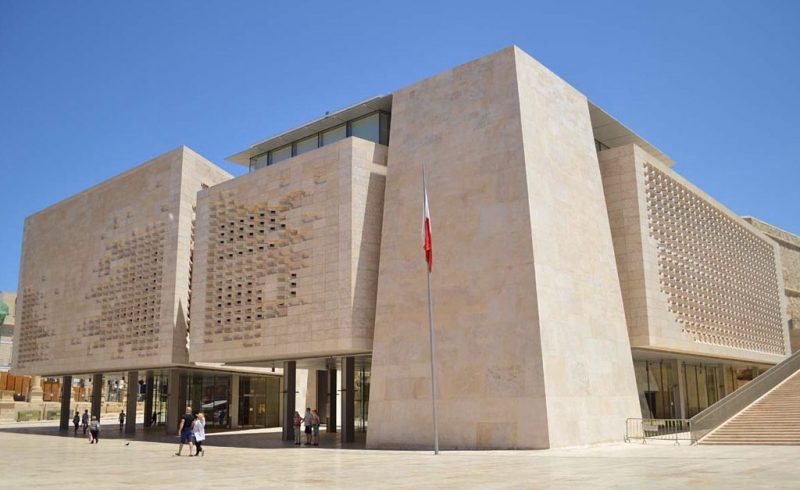Why is it that everything the government touches turns into a bubbling cauldron of incompetence, sleaze, and corrupt practices? This is a question that surely will have crossed many people’s minds and the word “everything” is not an exaggeration.
It is not only the large scale energy and healthcare projects that are mired in scandal and corruption. There is the complete subversion of the public procurement process and the artificial inflation of government jobs. There were questionable promotions within an already beleaguered police force, after the Armed Forces, and there continue to be serious allegations of abuse within Malta’s prisons.
Malta’s planning laws seem designed specifically with all the necessary loopholes to enable them to be sidestepped or circumvented. On top of it all, those politicians that have been entrusted by voters to administer the country’s public affairs for the common good, not only mismanage those affairs but, when asked to explain themselves or give reasons for their actions or inactions, behave with the utmost contempt towards the general public whom they are supposed to serve.
At the very core of each and every scandal – no matter the scale – is maladministration.
However, we have become so desensitised to this systemic problem, that the relationship between how maladministration undermines the rule of law is simply overlooked. The independent institutions that have been set up to investigate and advise on how to better administer public affairs, such as the National Audit Office, the Commissioner for Standards in Public Life, and the Ombudsman are at best routinely ignored.
The right to good administration
Article 41 of the Charter of Fundamental Rights of the European Union lists good administration as a fundamental right and although the right in this Charter is limited to situations when one is dealing with the institutions and bodies of the European Union, there is nothing that prevents the basic principles of good administration from being applied to national bodies and institutions of EU Member States.
The general principles underlying the right to good administration have to some extent been applied locally in the law setting up the office of the Ombudsman. However, the Ombudsman can only make recommendations that are not enforceable, and while in most EU countries the Ombudsman’s recommendations are held in higher regard than judgments of the highest administrative courts, in Malta the prevailing attitude is one of indifference, if not hostility.
A report published on 25 October by The Times of Malta found that almost a quarter of the reports compiled by the office of the Ombudsman since 2018 remain largely ignored.
More recently, Police Commissioner Angelo Gafa and Home Affairs Ministry permanent secretary Kevin Mahoney did not ignore the Ombudsman report but responded by saying they disagreed with the Ombudsman’s conclusions on a report that highlighted incorrect procedures in their own sector.
Toothless by design
The reports by the National Audit Office, which also independently reviews, investigates and advises on everything that has to do with the financial and accounting transactions of the government and other funds of a public nature, are also frequently ignored. When a report is taken up for review by a parliamentary committee, the process is stalled to point of reducing it to a farce.
The damning NAO report into the Electrogas deal was tabled in parliament in November 2018. However, almost three years down the line the Public Accounts Committee (PAC), which is mandated with examining and inquiring into reports, accounts, and related matters as referred to it by the Auditor General, has been rendered powerless to even scrutinise the NAO’s findings thanks to the shameful antics of individuals such as Paul Apap Bologna and his lawyer, and the sheer contempt displayed by Konrad Mizzi.
Similarly, the NAO had also sounded the alarm about the deal between the Maltese government and Vitals Global Healthcare (VGH) over the concession of three of Malta’s public hospitals, saying that VGH should have been excluded from the bidding process altogether. The Shift’s latest investigation into the Vitals/ Steward healthcare agreement with the government has confirmed just how well-founded the NAO’s initial conclusions were.
Then there are the reports by the Commissioner for Standards in Public life which are passed on to what can at best be described as a “dysfunctional” Parliamentary Standards Committee, designed to ensure a stalemate because it is made up of two MPs from each of the two main parties, leaving the final decision to the Speaker.
While in the UK, the MP Owen Patterson was suspended from parliament for 30 sitting days after the Committee on Standards found he breached the rules of paid advocacy, in Malta, we have Speaker Anglu Farrugia who kept delaying his casting vote, only to then vote against the adoption of the Standards Commissioner’s report discussing Labour MP Rosianne Cutajar’s involvement in a €3 million property deal involving Yorgen Fenech.
Anglu Farrugia also abstained from casting his deciding vote, thus stalling the adoption of the Standards Commissioner’s report that had found minister Carmelo Abela to be prima facie in breach of ethical standards after the latter spent €7,000 in taxpayer’s money on promotional adverts.
You had one job
To be clear, not all maladministration necessarily implies illegality, although illegality will inevitably generate maladministration.
However, just because it is not a crime to do one’s job badly, doesn’t mean we should not expect better from our public administrators. They are bound to render a true and faithful explanation of their management of public affairs to those who have entrusted them with the mandate to do so.
These explanations should not be muddied by political motives or riddled with half-truths and platitudes. Most importantly, it should not be made next to impossible to obtain information about the management of public affairs.
In 2007, the Ombudsman was entrenched in Malta’s Constitution with the insertion of Article 64A. However, as Ivan Mifsud noted in his book, ‘The Ombudsman Remedy in Malta’, the administration at the time ignored the suggestions made by the Ombudsman when the constitutional amendment was being drafted. These included the introduction of the Right to Good Administration among other things (pg 29-30).
There’s no denying that we are now reaping the fruits of this inaction.
And as long as the reports and recommendations by independent institutions continue to be considered on a partisan basis by both the government and by members of the opposition, there won’t be the will to undertake any effective enforcement and the problem of maladministration will remain.














An absolutely brilliant synopsis of all that is wrong in Malta!
That was Labour’s roadmap since 2013
“the administration at the time ignored the suggestions made by the Ombudsman when the constitutional amendment was being drafted. These included the introduction of the Right to Good Administration among other things”
Din turi biċ-ċar li l-problema f’Malta hi waħda repetuta, konsekuttiva, u endemika. Il-problemi li qed naraw ma ġewx minn gvern wieħed imma gvernijiet konsekuttivi li dejjem jaraw x’jagħmlu biex jgħawġu s-sistema favurihom. Għalhekk l-edukazzjoni qatt ma tmur ‘il quddiem minkejja l-flejjes enormi li qed jintnefqu fuqha. Għalhekk il-partitarji qed jipperpetwu din l-idea ta’ “aħna kontrihom”, “aħmar kontra blu”. Għalhekk il-ministri jipperpetwu l-idea li huma nobbli fewdali, allat mixjin l-art, u li huma hemm biex aħna l-mortali nkunu nistgħu nokorbu għandhom għall-pjaċiri ħalli forsi nistgħu niġu elevati mill-baxx li ninstabu fih. Idea li titqawwa ma’ kull “prosit ministru” li jirċievu dawn it-taparsi milordi.
L-unika soluzzjoni hija bidla radikali fis-sistema u fil-kultura ta’ dal-pajjiż li, kulma jmur, qed jinżel f’baxxezza iktar u iktar fonda.
Wouldn’t the peter principal be the reasoning? albeit corruption, nepotism, and a load of others do pop up. There is a big level of incompetence in their hierarchy.
Excellent article
Good question but the answer, sadly, is that not enough people care! They’re too focused on their own pockets or brainwashed by what passes for TV news in Malta which is biased beyond belief!!